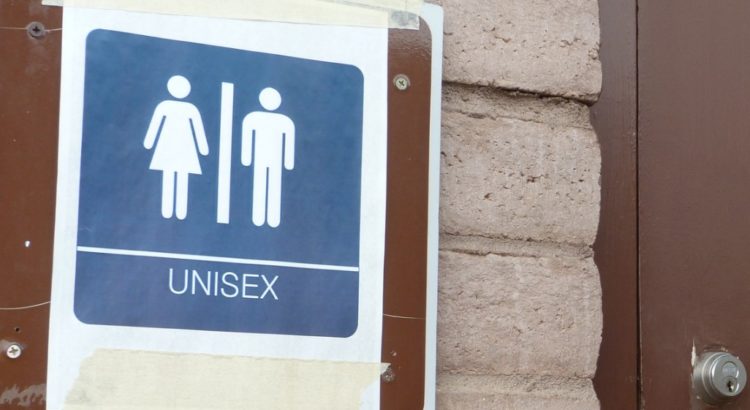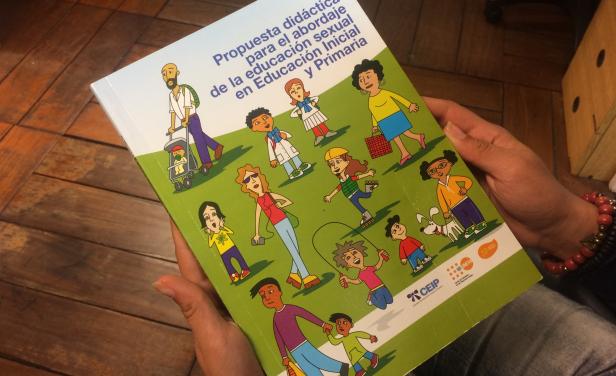Japón/Agosto de 2017/Autor: Tomomi Miura/Fuente: The Japan Times
Resumen: La salida de los estudiantes lesbianas, gays, bisexuales y transexuales por parte de los profesores está en auge en Japón, que todavía carece de un marco para entender las ramificaciones de la cuestión en términos del sistema educativo. Los profesores que simplemente piensan que están mostrando consideración a los estudiantes LGBT al informar a los padres y compañeros de clase de su orientación sexual o identidad de género puede estar causando un daño irrevocable, dicen los expertos. Divulgar públicamente tal información confidencial sin consentimiento desalienta a otros estudiantes LGBT de venir hacia adelante debido a los temores de discriminación y falta de confianza.
The outing of lesbian, gay, bisexual and transgender students by teachers is on the rise in Japan, which still lacks a framework for understanding the ramifications of the issue in terms of the educational system.
Teachers who may simply think they are showing consideration to LGBT students by informing parents and classmates of their sexual orientation or gender identity may in fact be causing irrevocable harm, experts say.
Publicly disclosing such confidential information without consent discourages other LGBT students from coming forward due to fears of discrimination and lack of trust.
While this has been a hot topic in the United States, Japan is in uncharted waters.
Minako “Minata” Hara, representative director of Kyosei Net, a Tokyo-based nonprofit organization also known as the All Japan Sexual Minorities Support Network, says the number of LGBT students seeking consultations for being outed at school is rising.
Hara recently consulted a student who had just been outed.
“Although the LGBT student only consulted with the teacher in charge, the parents found out immediately,” said Hara, adding that some parents have difficulty accepting their children’s changes and scold or rebuke them.
Some parents often blame themselves, thinking the issue stems from “a problem with the child’s upbringing,” she said.
In one case, a student with gender identity issues who was registered as male at birth told a supervising teacher she wanted to be included in the female group for a school trip. But before the student realized it, the teacher told her classmates about the situation, and some of their parents later complained to the school.
Kyosei Net has seen a rise in consultations related to outing and more incidents are reported each year.
“Most of the teachers are just acting because they want people around them to be aware. But since they lack a common understanding, they are often just playing it by ear,” said Hara.
A 2013 survey by the Education, Culture, Sports Science and Technology Ministry found that 606 students had consulted their school administrators because they felt uncomfortable with their sex registry at birth. But it is believed there are a considerable number who simply do not wish to come forward, meaning those who do represent only the tip of the iceberg.
In recent years, the government has started working to provide schools with proper knowledge about the LGBT community to prevent more incidents of outing.
Last year for the first time, the education ministry compiled and distributed a pamphlet nationwide on how teachers can support students who are sexual minorities.
Given the lack of an LGBT-inclusive curriculum, teacher training has started in Tokyo’s Bunkyo Ward, Kashiwa in Chiba Prefecture, and other places around the country.
“First of all, we have to make sure teachers aren’t the ones who are harming the students,” said the person in charge of training in Kashiwa.
But according to one elementary school teacher from the Tohoku region with experience teaching a pupil with LGBT issues, there is still a long way to go.
“There is still a huge awareness gap among teachers. The issue of how to deal with this is close at hand. We have to firmly grasp the knowledge and have support measures in place.”
There is also a fear that a delay in action is causing harm from a medical perspective.
The Japanese Society of Gender Identity Disorder and the Japanese Society of Psychiatry and Neurology both made requests in July to the education ministry to warn teachers that outing LGBT students could lead to depression and in some cases suicide.
Junichiro Ota, who heads JSPN’s panel on gender identity disorder, said the wishes of LGBT students should always be respected first and foremost. Students should also be taught about understanding sexual diversity, he said.
“The wishes of the persons involved must be respected and teachers must proceed cautiously in explaining this to others around them,” he said. “Regardless of whether there are LGBT students involved, we have to have education that deepens understanding of sexual diversity.”
Fuente: https://www.japantimes.co.jp/news/2017/08/17/national/social-issues/students-outed-teachers-however-well-intentioned-feel-risk-japan/#.WZX7YNLyi00















 Users Today : 131
Users Today : 131 Total Users : 35459726
Total Users : 35459726 Views Today : 219
Views Today : 219 Total views : 3418191
Total views : 3418191